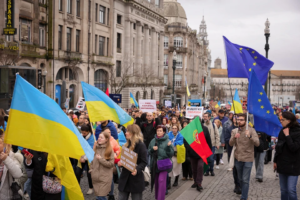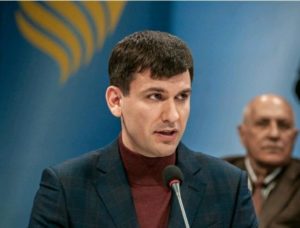
According to Eurostat, as of the end of July 2025 there are 4,373,455 citizens of Ukraine under temporary protection in EU countries. Over the month their number increased by 30,980 people, that is approximately by 0.71% compared to the June level — the dynamics are moderate but stable, indicating a continuing, though not surging, movement of people in search of safety. The overwhelming majority of beneficiaries of this regime — about 98.4% — are Ukrainians, which makes the group of aid recipients extremely homogeneous and requires focused integration measures.
The distribution by countries remains concentrated: the key burden is borne by Germany, Poland, and the Czech Republic. In Germany there are about 1,196,645 people — roughly 27.8% of the total; in Poland — about 992,505 people (around 23%); in the Czech Republic — about 378,420 people (about 8.8%). Taken together this is almost three-fifths of all recipients of protection, therefore it is precisely these economies and their social systems that first react to any changes in inflow: in large agglomerations the issues of housing affordability become acute, the need for school places and language courses grows, and municipal budgets face continuous obligations.
In such conditions, reception policy inevitably shifts to an integration agenda. Coming to the fore are the accelerated recognition of qualifications, intensive language programs, access to kindergartens and schools, as well as reskilling instruments. The labor market becomes the main shock absorber: the faster people move into formal employment, the lower the budgetary burden and the more noticeable the multiplier effect for domestic demand. At the same time, the housing issue remains the key risk: concentration in capital and industrial regions pushes rental rates upward and increases social tension. Effective responses appear to be targeted rent subsidies, accelerated renovation and construction of social housing, as well as a more even distribution of placements among municipalities.
Finally, the predictability of financing and interagency coordination at the EU and national government levels becomes critically important. Even with the current “soft” monthly increase, unreliable sources of funds quickly turn a manageable situation into a problem for local budgets. On the horizon of the coming months, the key indicators of resilience will be the growth rates of protection beneficiaries, the share of those employed, indicators of school and preschool integration, the dynamics of rental rates in concentration regions, and the speed of transition from emergency measures to long-term programs. Overall, the picture of stable but continuing growth with high concentration in Germany, Poland, and the Czech Republic requires shifting efforts from short-term aid to systemic integration — precisely this will make it possible to reduce budgetary costs and turn the humanitarian response into a sustainable socio-economic result.
EU, GERMANY, HOUSING, Labor market, MIGRATION, POLAND, REFUGEES, SOCIAL POLICY, TEMPORARY PROTECTION, UKRAINIANS

The National Social Service started to exercise its powers and functions, according to the Ministry of Social Policy of Ukraine.
“Today, at a government meeting, an order was adopted on the beginning of implementation by the National Social Service of Ukraine of its powers and functions for the implementation of state policy in the field of social protection of the population and protection of children’s rights, as well as the implementation of state control over compliance with legal requirements in the provision of social support and observance of children’s rights,” the press service of the ministry said.
The report says that the state registration of the service has already been carried out, the approval of its position and structure, the staffing table of the apparatus, estimates, and 30% of vacancies have been filled.

Thirty-nine non-governmental organizations are going to take a legal action to declare unlawful a constituent assembly held on Monday, April 22, to form the public council under Ukraine’s Social Policy Ministry.
Head of NGO All-Ukrainian Platform of Donbass, head of the public council under the Ministry of Temporary Occupied Territories and Internally Displaced Persons of Ukraine Hennadiy Borisichev announced this in a comment to Interfax-Ukraine.
According to him, the initiative group on the formation of the public council under the Social Policy Ministry has “committed gross violations of the law, and the meeting itself [on the formation of the public council] was held behind closed doors.”
“The activity of the initiative group was not transparent, with undisguised abuse of authority. Thirty-nine representatives of NGOs were not allowed to participate in the constituent assembly. This is an anti-record for the entire existence of the institution of public councils in our country,” he said.
According to Borisichev, human rights activists and journalists who arrived at the meeting were also not allowed to take part. Representatives of NGOs had a scuffle with the guards.
Members of anti-corruption NGOs were also not let in for the meeting, he said.
“The NGOs are now preparing documents for the court to recognize the constituent assembly on the formation of the public council under the Ministry of Social Policy as illegal,” he said.
COURT, NON-GOVERNMENTAL ORGANIZATIONS, PUBLIC COUNCIL, SOCIAL POLICY